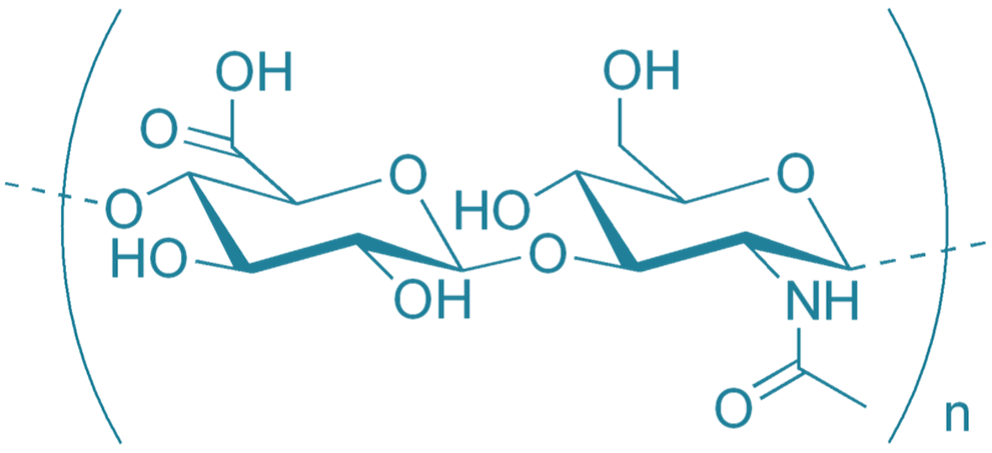Hyaluronan
Hyaluronan in health and disease – development of novel therapeutics based on hyaluronan for treatment of inflammation-related disorders
Responsible person: Lukáš Kubala (Gabriela Ambrožová, Kristýna Turková)
Hyaluronan (HA), one of the body’s own biopolymers, is able to promote healing and modulate inflammation. The primary goal is to identify new mechanisms and principles of HA actions in the course of healing and inflammatory processes that will be used for development of HA based pharmaceuticals and biomaterials. This highly soluble and rapidly degradable polymer can be stabilized to enhance efficacy. Newly synthetized HA derivatives have acquired not only a range of physicochemical properties but also novel specific biological properties, they are able to modulate inflammation; acute in the case of acute wounds or surgical interventions; as well as chronic inflammation that often accompanies a variety of pathologies including non-healing wounds and intestinal inflammatory diseases.

We focus on basic research related to HA regulatory functions, particularly on the effects of both endogenously produced and exogenously given HA on regulatory processes on the level of cells, tissue, and whole organism. We evaluate HA receptors, intracellular metabolism of glycosaminoglycans, and inflammation-mediated changes in synthesis and degradation of HA. We perform the determination of the pharmacokinetics of externally added HA using a unique methodology of stable isotope-labeled HA of different precisely defined molecular weight. In collaboration with the Contipro company, we used the obtained knowledge about HA derivatives for the development of new hyaluronan-based pharmaceuticals and biomaterials.
To screen the capacity of HA and its derivatives to modulate innate and specific immune responses, selected in vitro assays using human leukocytes or mouse leukocytes and lymphatic tissues are used. Furthermore, the efficacy and mechanism of action of the most promising candidates are studied in vivo. Our project should provide detailed information about effects of newly synthetized HA derivatives on myeloid cells, revealing their potential to affect inflammatory response and the pathological consequences, thereby helping to develop efficient state-of-the-art drugs and biomaterials in the treatment of inflammatory diseases.